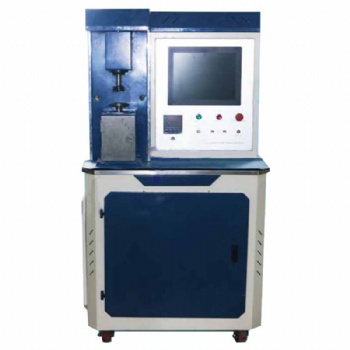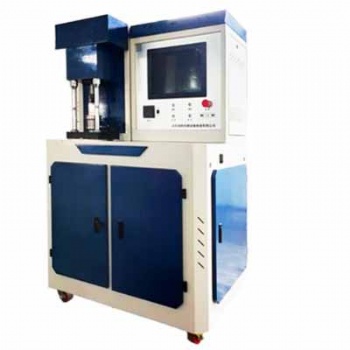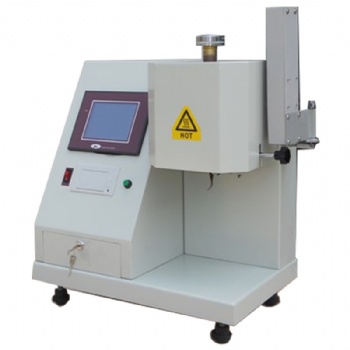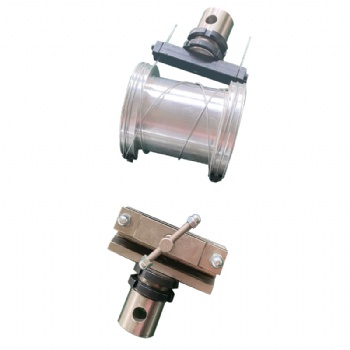News
The Essential Role of a 1000N Tensile Testing System in Modern Industry
The Essential Role of a 1000N Tensile Testing System in Modern Industry
In industries ranging from aerospace to medical devices, ensuring material strength and durability is critical. A 1000N tensile testing system is a versatile and precise instrument designed to measure the mechanical properties of materials under controlled tension. Whether you're testing metals, plastics, composites, or textiles, this system provides accurate data on tensile strength, elongation, yield strength, and modulus of elasticity.
What Is a 1000N Tensile Testing System?
A 1000N tensile testing machine applies a controlled force (up to 1000 Newtons) to a test specimen until it fractures or deforms. The system records key metrics such as:
Maximum load capacity before failure
Elongation percentage (how much the material stretches)
Stress-strain curves for material behavior analysis
These measurements help manufacturers, researchers, and quality control teams ensure compliance with ISO, ASTM, and DIN standards.
Key Features of a High-Performance 1000N Tensile Tester
High Accuracy & Repeatability
Advanced load cells ensure precise force measurement (±0.5% or better).
Eliminates inconsistencies in material testing.
User-Friendly Software
Real-time data visualization and automated reporting.
Compatible with Windows-based systems for seamless integration.
Durable & Stable Frame
Heavy-duty construction minimizes vibrations for accurate readings.
Suitable for both laboratory and industrial environments.
Wide Testing Applications
Metals, polymers, rubber, textiles, wires, and biomedical materials.
Used in automotive, construction, electronics, and R&D labs.
Safety & Compliance
Emergency stop function for operator protection.
Meets ISO 6892, ASTM E8, and other international standards.
Real-World Applications: What Can You Test with a 1000N Tensile Tester?
1. Metals & Alloys
Aluminum sheets (0.5-2mm thick) - Measure yield strength for aerospace components
Copper wires (1-3mm diameter) - Test elongation before breakage for electrical applications
Stainless steel surgical needles - Verify maximum load capacity for medical devices
Why it matters: Automotive manufacturers use these tests to ensure crash-relevant components meet exact strength requirements.
2. Plastics & Polymers
PET beverage bottles (sidewall samples) - Evaluate burst resistance
Polypropylene packaging straps - Test tensile strength for shipping security
PVC medical tubing - Measure elongation properties for IV sets
Case Example: A plastic film producer reduced material costs by 15% after identifying the optimal thickness through systematic tensile testing.
3. Textiles & Fibers
Nylon seatbelt webbing - Verify strength to automotive safety standards
Surgical suture threads - Test knot strength and elongation
Kevlar fabric samples - Measure performance for ballistic applications
Industry Insight: Textile manufacturers perform 20+ tensile tests per fabric batch to ensure consistent quality.
4. Specialty Materials
Adhesive tapes - Measure peel strength (90° and 180° tests)
3D printed ABS samples - Validate layer bonding strength
Rubber gaskets - Test elasticity under tension
Pro Tip: Many customers combine tensile testing with environmental chambers to simulate real-world conditions.
Why Should You Invest in a 1000N Tensile Testing Machine?
✔ Quality Assurance – Ensures materials meet industry specifications before production.
✔ Cost Efficiency – Reduces waste by identifying weak materials early.
✔ Research & Development – Helps engineers develop stronger, lighter materials.
✔ Regulatory Compliance – Necessary for certifications in aerospace, medical, and automotive sectors.
How to Choose the Right Tensile Testing System?
When selecting a 1000N tensile strength tester, consider:
Load capacity – Ensure it matches your material requirements.
Testing speed – Adjustable crosshead speed for different standards.
Grip types – Pneumatic, manual, or specialized grips for unique samples.
Software capabilities – Exportable reports, multi-language support.
Who Uses a 1000N Tensile Testing Machine?
Manufacturers – Testing raw materials before production.
Research Labs – Studying new material properties.
Quality Control Teams – Ensuring batch consistency.
Universities – Teaching material science and engineering principles.
Optimizing Your Search for the Best Tensile Tester
If you're searching for:
"1000N tensile testing machine for plastics"
"Affordable tensile strength tester"
"ISO-compliant material testing equipment"
You’re in the right place! Our high-precision 1000N tensile testing systems deliver unmatched accuracy and reliability.
Ready to Upgrade Your Testing Capabilities?
Whether you need a standard model or a customized solution, our experts can help you find the perfect tensile testing system for your needs.
📩 Contact us today for a free consultation and quote!
🔹 Request a Demo – See the machine in action.
🔹 Custom Solutions – Tailored to your testing requirements.
Keywords:1000N tensile testing machine,Tensile strength tester 1000N,Material testing equipment,Force measurement system,Universal testing machine 1000N,Precision load cell tester,Mechanical properties analyzer,Lab tensile testing machine,ASTM/ISO compliant tensile tester,High-precision material strength tester,1000N tensile test for aluminum alloys,Plastic film tensile strength testing,Medical device material tester,Packaging material strength tester,Wire and cable tensile test
Categories
Contact Us
- +86-18615632092
- sophie@jnwtbte.com
- +86-18615632092




 售前客服
售前客服